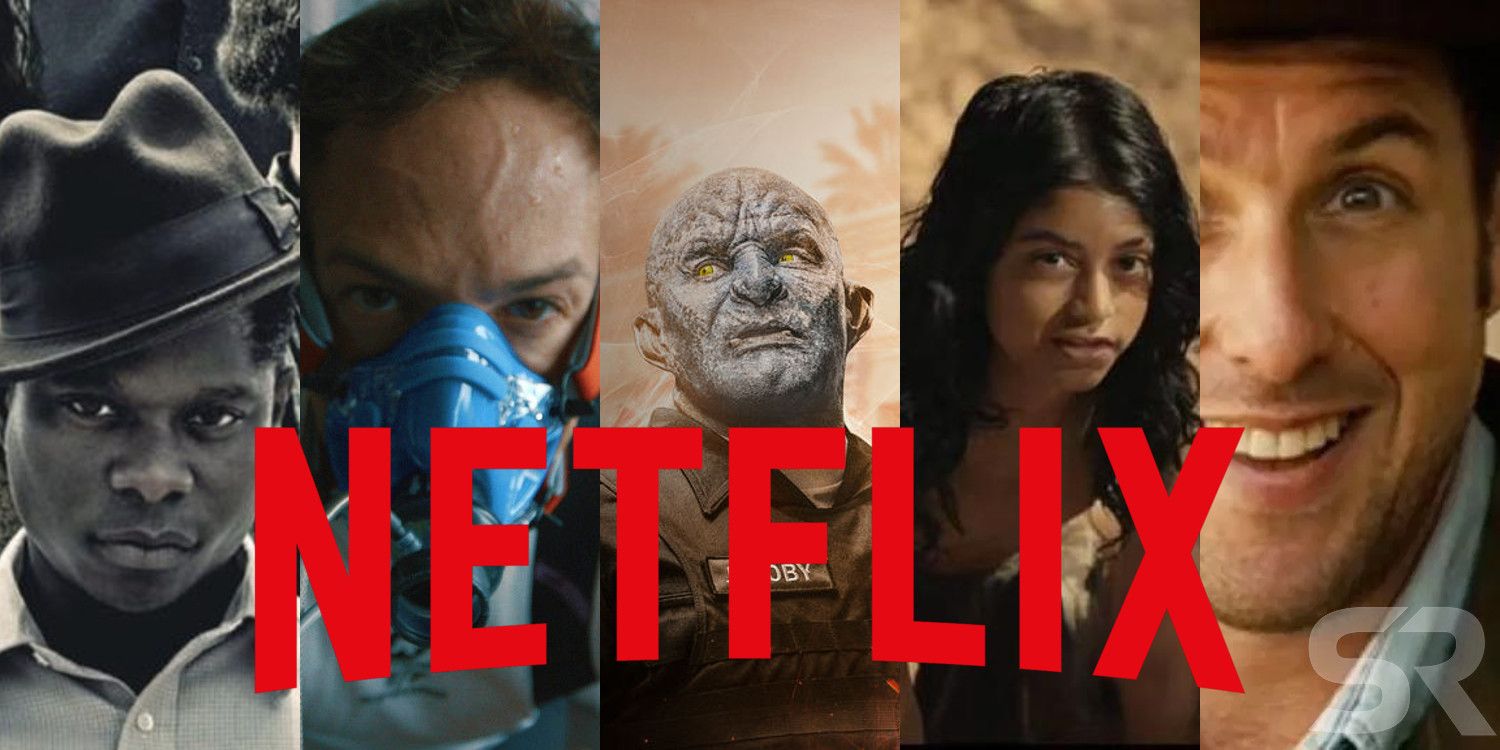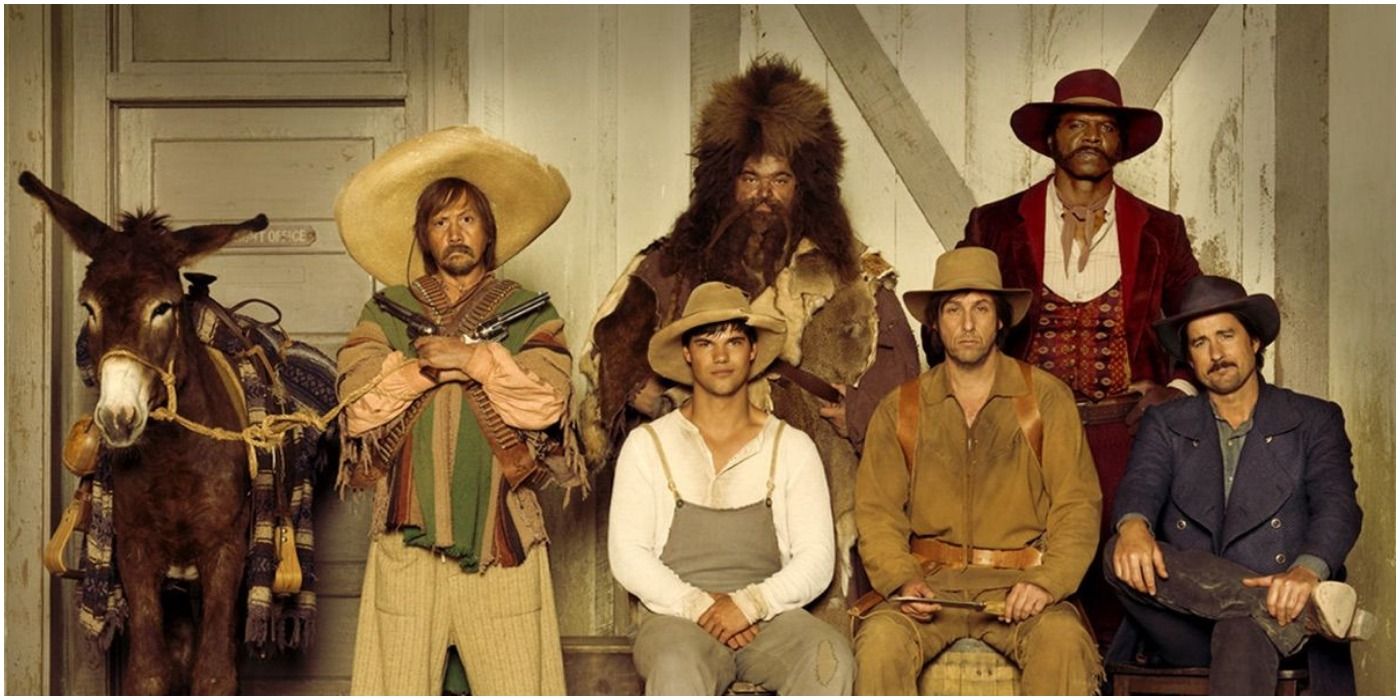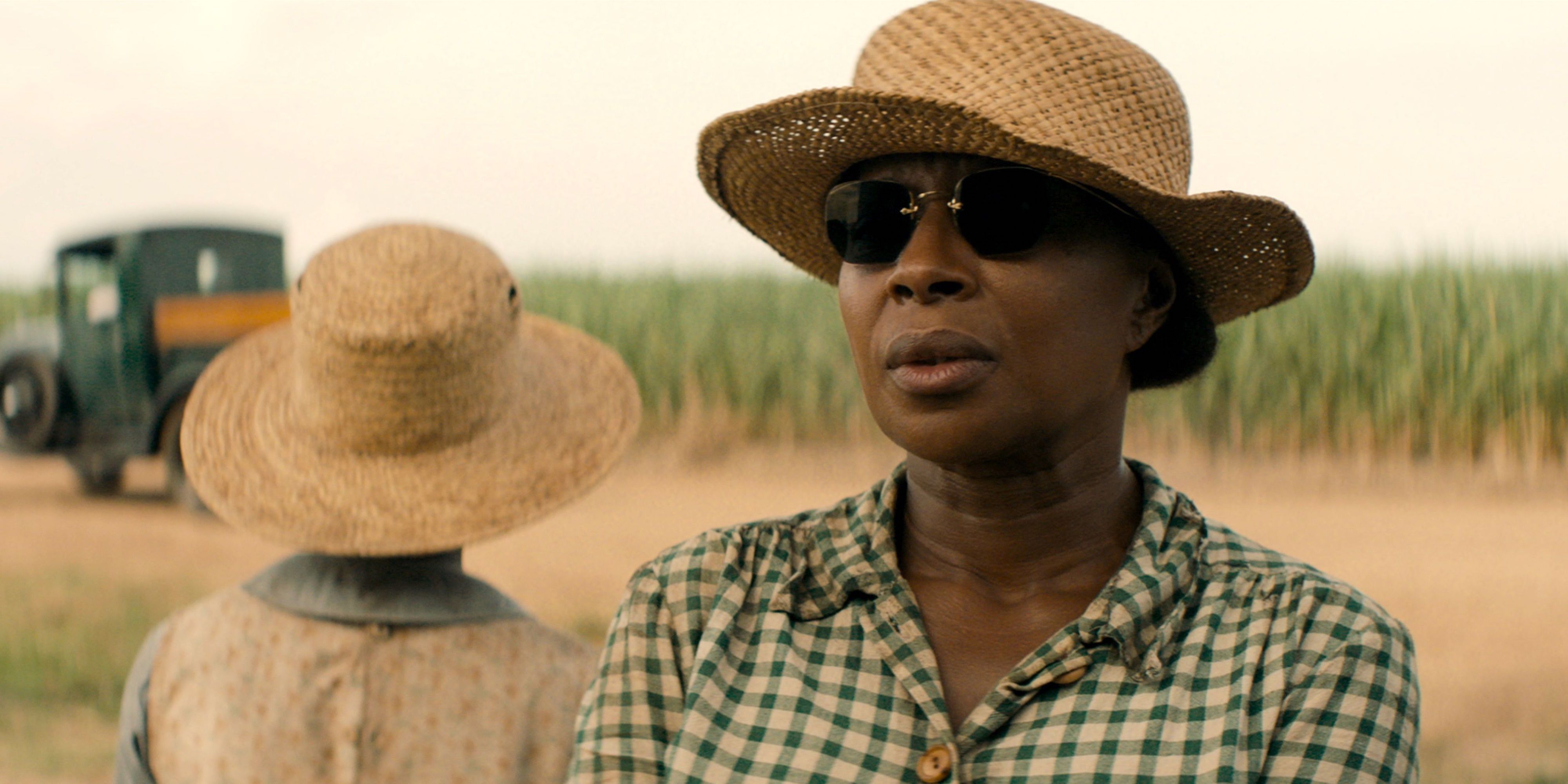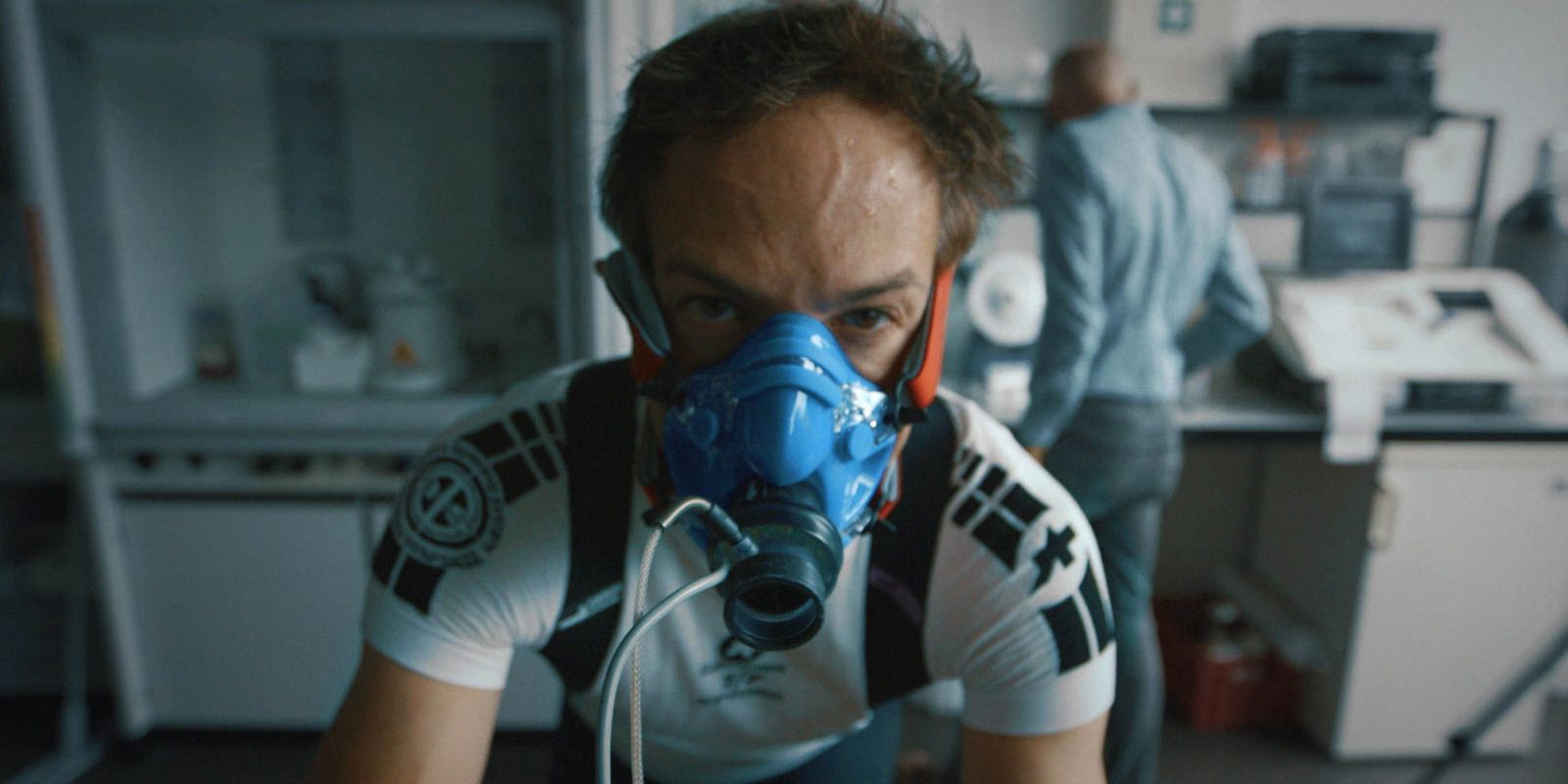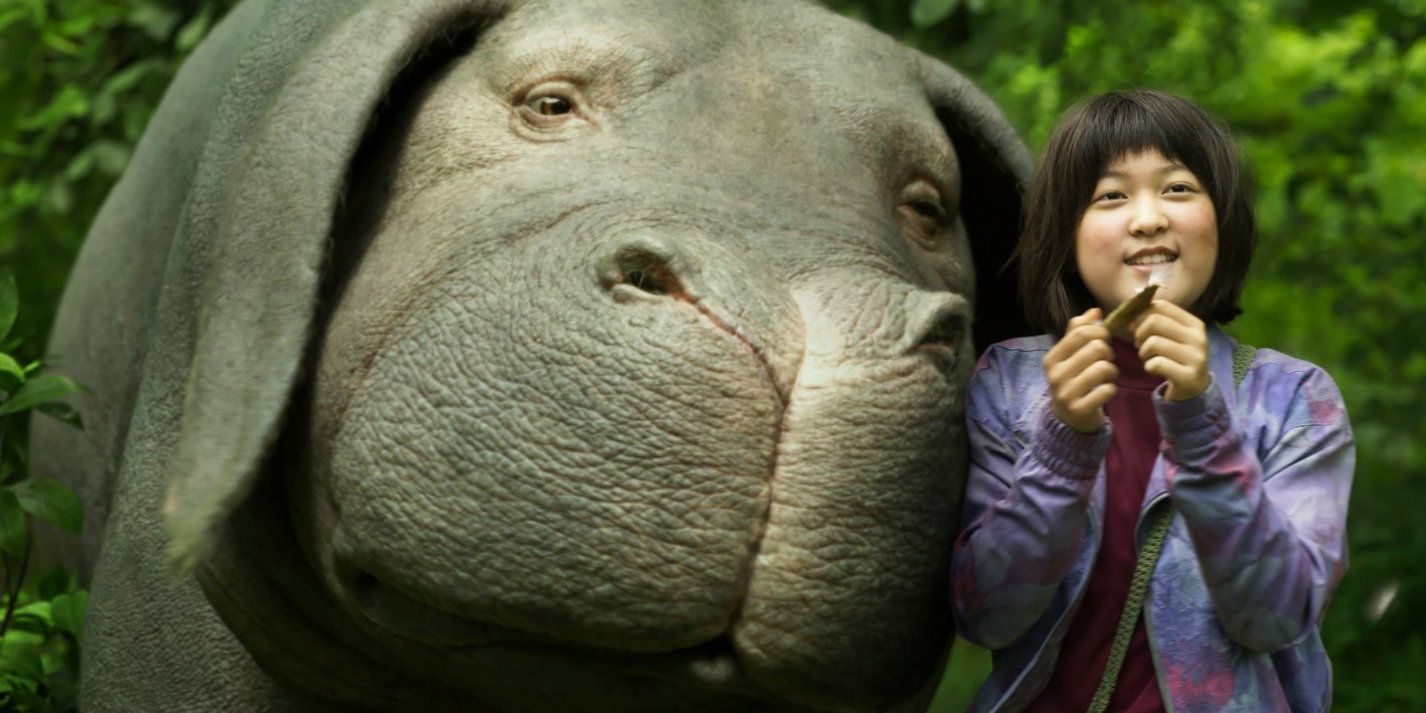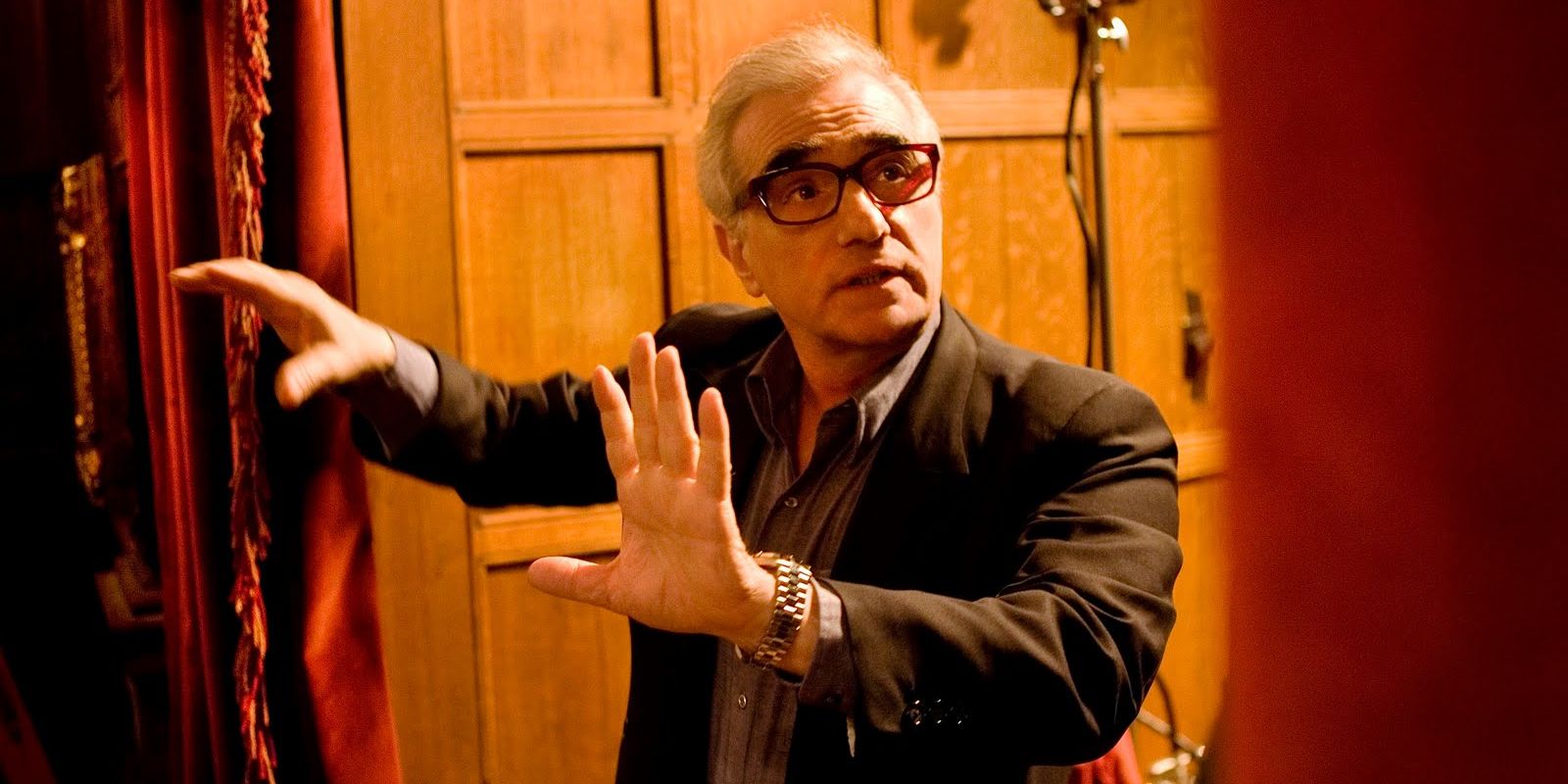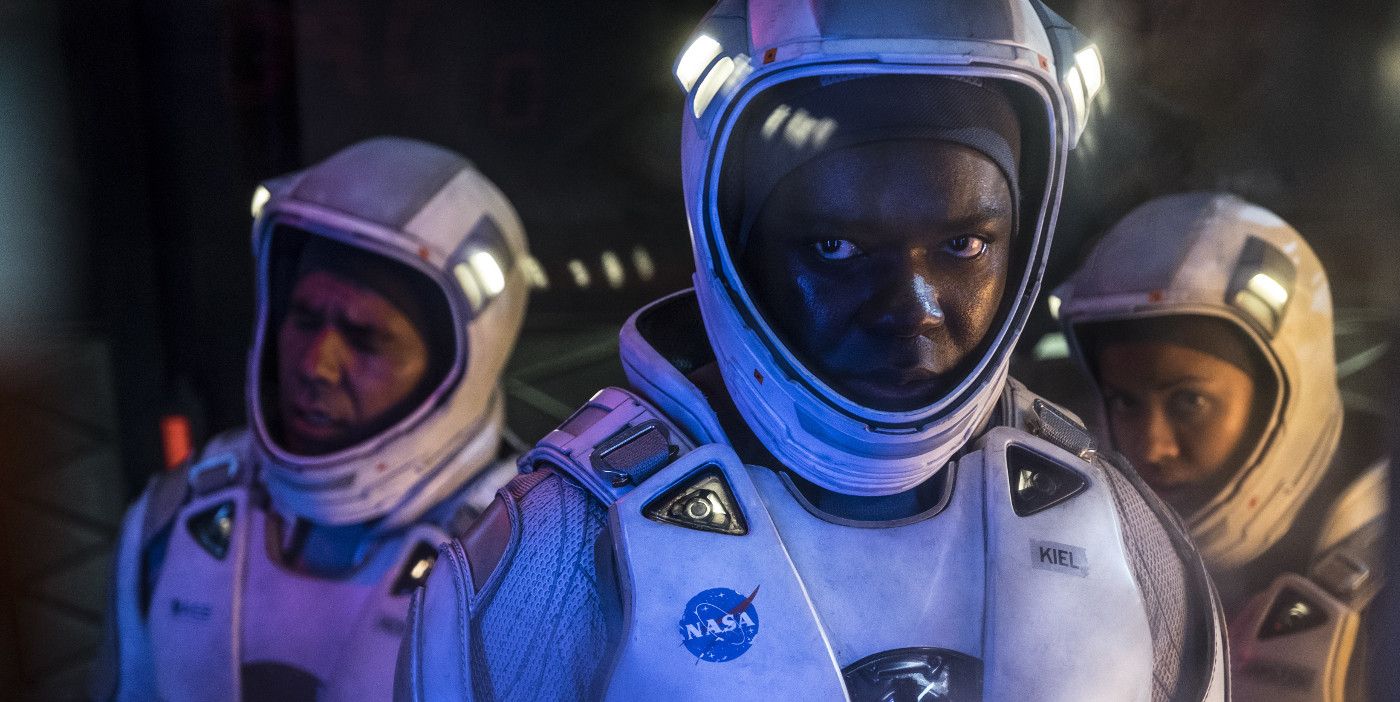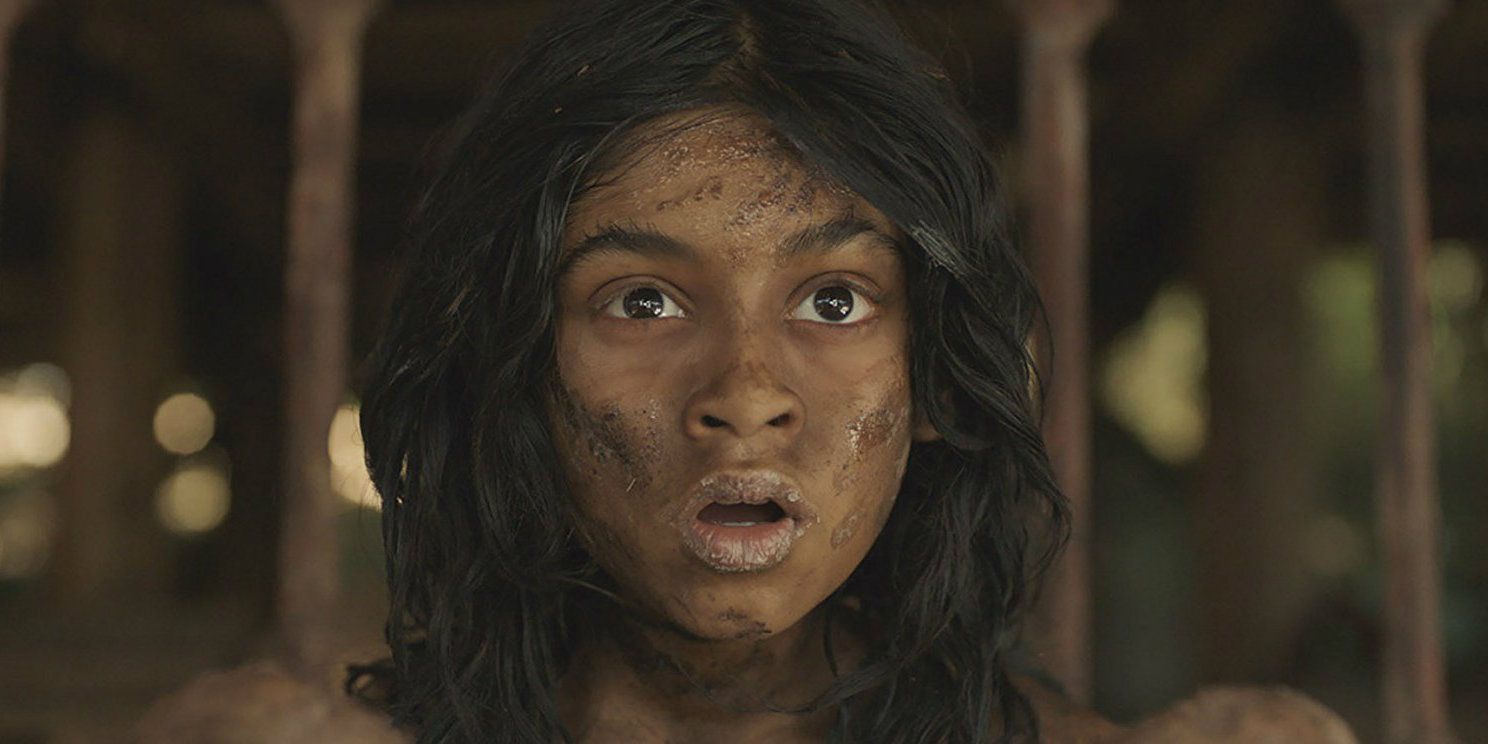From Adam Sandler deals to Bright and Mowgli, Netflix’s long-term game plan to dominate Hollywood with its original movies is a long time coming.
It may be hard to believe, but it’s only been four years since streaming service giants Netflix got into the business of producing original movies. After earning a name providing easy access to audiences’ favorite films and television shows, Netflix got into the business of producing original content. Its roster of television shows has proven wildly popular and critically ground-breaking, while a steady stream of stand-up specials has helped to revolutionize comedy for the mainstream, making it more accessible than ever. Yet the golden heights of old-school Hollywood movie power have mostly eluded the streaming giant. Netflix's documentaries have been critical successes, picking up a few Oscars along the way, but it’s been tough to shake the feeling that Netflix's original comedies and dramas have the distinct air of second-rate cast-offs. Even the good stuff has been stuck with that unfair label.
Related: Mowgli Is A Major Step In Netflix's Plan for Hollywood Domination
Even so, change is on the horizon, and it’s tough to ignore how, with each major announcement or acquisition, Netflix’s dream of keeping up with the traditional studio system is slowly coming to fruition. As its catalog of original films builds, helping the service towards an ultimate game plan of having 50% original content, audiences and critics are becoming more intrigued with their offerings. After much doubt and disdain, it seems like Netflix’s long-term plotting for Hollywood domination is closer than ever. Yet from the beginning of its original movies slate, the streaming service has been breaking down doors and demanding change, even in the most unlikely places. With that in mind, here are the eight Netflix original films that helped change the game.
- This Page: Adam Sandler
- Page 2: Awards Contenders
- Page 3: High Profile Releases
- Page 4: The Future of Cinema
The Ridiculous 6
The mega-deal Adam Sandler secured with Netflix has always been a topic of much derision and cynicism. In recent years, Sandler hasn’t been a critical darling and studios were finding it tough to justify the enormous cost of his productions. Yet audiences have largely remained loyal to Sandler and turned to his old films on Netflix for good old-fashioned comfort viewing. That’s what inspired Netflix to offer Sandler so much money.
Related: 25 Netflix Originals To Look Out For In 2018
The Ridiculous 6 was panned by most critics, who considered it unwatchable even by latter-era Adam Sandler standards. Yet, according to Netflix, it was viewed more times in 30 days than any other movie in Netflix history. As of April 2017, reports suggest Sandler's work has been viewed over half a billion times on Netflix. He's since released three films as part of the same distribution deals. The Sandler deal brought big stars to Netflix and offered the perfect partnership of creator and audience. It may not have been prestigious but it worked.
Page 2: Awards Contenders
Mudbound
Netflix had tried its hand at an Oscar campaign before. The platform's first official original drama, Beasts of No Nation, was given the appropriate theatrical run and promotion in an attempt to land some nominations but it walked away empty handed. Few took the film’s chances seriously, nor did anyone think Netflix what it takes to play by the Academy’s rules. Mudbound shifted those perceptions.
Directed by Dee Rees and starring Carey Mulligan and Mary J. Blige, Mudbound premiered at the Sundance Film Festival to rave reviews and set off a bidding war with distributors. It was Netflix that put down the major money and won the day, paying around $12 million for the privilege. There was an expensive awards campaign too, ensuring its presence with Oscar voters was impossible to ignore. Particular attention was given to Mary J. Blige, whose chances at a Best Supporting Actress nomination seemed the strongest of the lot. Eventually, the film garnered four nominations, including one for Rees in Best Adapted Screenplay. While it didn’t break through into Best Picture or Director as some had predicted, this still signaled a major step forward for Netflix. Not only were the films good enough to get awards attention, but voters were more willing than ever to reward it.
Related: 2017 Was a Great Year for Women in Hollywood
Icarus
Oscar success has not eluded Netflix. A big investment in both feature-length and short documentaries has added more than one Academy Award. Documentaries is an area where the service has broken real ground and helped to fill a gap that major cinema has often been lagging behind in. While 2018 has seen documentaries breaking box office records, the medium is still one seen primarily as television entertainment. So, naturally, Netflix took advantage of that and made its unique binge-watching formula work well for everything from Making a Murderer to The Staircase to this year’s Best Documentary Feature Oscar winner, Icarus.
Icarus is one of many acclaimed feature-length documentaries on Netflix’s roster, but this is the one that arguably had the most impact in the real world. Brian Fogel's documentary began as a gimmicky take on doping in sports - think Super Size Me with steroids - but slowly became an expose of the Russian Olympic Program's state-sponsored doping and its ties all the way to the top of the country's government. It’s the kind of documentary that would garner headlines wherever it premiered but instant accessibility via Netflix meant everyone could see it as soon as possible, thus spreading the message. There’s always been an audience for documentaries, but Netflix made it more open than ever.
Okja and The Meyerowitz Stories
In 2017, to the surprise of many film fans, the Cannes Film Festival announced that two Netflix original films would screen in competition, allowing them to compete for the prestigious Palme D’Or: Bong Joon-ho’s environmentalist drama Okja and Noah Baumbach’s ensemble dramedy The Meyerowitz Stories. Both films were the kind of fare expected on the festival circuit, but it was still a massive breakthrough for the most elite film festival on the planet to yield to the might of Netflix’s model. Even though it only lasted a year, Netflix made its point.
Related: Can Netflix Save Indie Filmmaking?
Okja and The Meyerowitz Stories were both warmly received, and although neither film won any awards, they were clearly the major talking points of the festival. Everyone was asked about Netflix’s presence at Cannes and if it was a good or bad sign for film. French cinema owners revolted, as the country’s law caused confusion over theatrical distribution, and eventually, the festival head, Thierry Fremaux, announced that Netflix films would no longer be eligible to premiere in competition. They are still able to screen in other areas of the festival, but not the top slate. In opposition, Netflix decided not to appear at the 2018 festival, even as rumors swirled that Fremaux was eager to get Alfonso Cuarón's Roma, a Netflix exclusive, into competition.
Regardless of what side you are on in this debate – and it’s hard to describe Netflix as scrappy underdogs facing up against the establishment when it's a multi-billion dollar company – it’s tough to deny that Netflix’s foray into Cannes kick-started a major debate over the future of cinema. The conversation was ferocious and sides were taken sharply. You were either for the evolution of the medium or a staunch traditionalist who opposed the home streaming experience. The future of cinema has been hotly debated since its inception, but in recent years, nobody has gotten that conversation to such hot-button levels and with such passion like Netflix. After years of positioning as a true threat to Hollywood’s status quo, this was the first time that felt true.
Page 3: High Profile Releases
The Irishman
There was no major acquisition by Netflix that sent Hollywood into a frenzy quite like the news that the streaming service had gained the rights to The Irishman, the long-awaited reunion of director Martin Scorsese and actor Robert De Niro. Scorsese had been loyal to Paramount for many years but after his passion project Silence flopped at the box office, he looked elsewhere for the necessary support this gargantuan film would need. Rumors swirled that Netflix paid as much as $150 million for The Irishman, which will be released in 2019. That’s big budget funding for Netflix, and for them to throw that kind of money around for something that wasn’t a Summer blockbuster style project indicated seriousness.
Related: Netflix Original Drama Series, Ranked Worst To Best
Netflix has attracted stars in the past, but Martin Scorsese was far more than that: he is a legend and stalwart figure from the world of cinema who seemed like the last person who’d end up working with a streaming platform. Scorsese is an auteur whose work has influenced countless directors, and now he was signing onto the service whose previous biggest movie name was Adam Sandler? As Hollywood moves further into franchise fare and the mid-budget drama flounders, funding has become harder to acquire, even for major names. Unless you’re making a blockbuster or tiny budget indie, there’s little middle ground for your work. Netflix, by bringing Scorsese into the fold, threw down the gauntlet and positioned itself as the true ally of filmmakers.
Bright
Putting aside the reviews and some of the more meme-friendly moments from David Ayer’s gritty fantasy cop drama, Bright still signaled a shift for Netflix in terms of its output and approach to promotion. This was a big-budget film with an undisputed megastar in the lead role and a high-concept hook that would appeal to the key geek demographics. Netflix knew this wasn’t just a film they could stick on the front page and never say anything else about, as they’ve so often been accused of doing with their other original films. So, Will Smith and his fellow cast members were given a proper promotional tour, just like any other big-budget genre film. They attended San Diego Comic-Con, they appeared on multiple late-night talk-shows, and the company pumped a lot of money into television and online adverts that made the movie’s presence high with potential audiences.
Related: Bright's Urban Fantasy Mythology and Worldbuilding Explained
According to Nielsen ratings, about 11 million American viewers streamed Bright within the first three days of its release, making it a legitimate hit by any standard. Netflix called it a victory for audiences, claiming that critics were disconnected from pop culture with mass appeal. Whatever the case, Bright was a step in the right direction for the platform and its attempt to muscle in on big-budget genre cinema.
The Cloverfield Paradox
Netflix has the ability to do something that the traditional studio system could never pull off: A surprise movie drop. It’s simply unfeasible for, say, Paramount to release a film in theaters with no publicity and expect people to care. The structure of the business doesn't support that and, even if they had the means to pull off the release itself, the lack of proper publicity build-up would leave the film dead in the way. Yet Netflix was able to go full Beyoncé with The Cloverfield Paradox.
With a major ad running during the Super Bowl that revealed audiences could immediately watch the movie after the biggest sporting event of the year, Netflix ensured all eyes were on its new movie. Even if you weren’t all that enthused about watching the film when it was announced, how could you resist the instant availability of it and that bomb of hype? The film itself didn’t set the world alight critically but its genius marketing gimmick demonstrated the unique aptitude Netflix had and the upper hand it gained over the old-school studio system.
Related: The Cloverfield Paradox Ending Explained
The deal itself for the film was also another point in Netflix’s corner, as the service acquired both The Cloverfield Paradox and the international distribution rights to Annihilation from Paramount. It signaled the beginning of major inter-studio deals and business relationships that cemented Netflix’s burgeoning status in the industry. Netflix wasn’t the enemy now so much as someone to do mutually beneficial work with.
Page 4: The Future of Cinema
Mowgli
The most recent acquisition by Netflix may not seem like that big a deal at first glance but it’s another sign of the service's increasing might in Hollywood as well as further cementing its place in the Hollywood ecosystem. Mowgli, Andy Serkis’s darker take on Rudyard Kipling’s The Jungle Book, had been a long time in the making and had seen its release date delayed more than once as Warner Bros. feared it losing in a competition with Disney’s own big-budget live-action Jungle Book remake. Concerns were that the film would be too niche, too dark for kids, or simply unable to keep up with the juggernaut of Disney.
Netflix announced it had acquired distribution rights to Mowgli, which had been set for a release this October, but will now screen it some time in 2019. This was a major power move for the platform, combining an ability to work well with traditional studios and a growing awareness of the need to appeal to the key family demographics. Netflix didn’t just buy a new movie to add to its roster: it got one that was three mere months away from a theatrical release and made audiences more enthused than ever for the final product. Of all the recent announcements and acquisitions, it may be Mowgli that signals the loudest how Netflix can legitimately compete with the major studios.
The Other Side of the World
Between 1970 and 1976, legendary director Orson Welles shot an experimental satire called The Other Side of the World. The film, which starred directors John Huston and Peter Bogdanovich, was a mockumentary about the death of the old studio system and its directors in the shadow of New Hollywood's bright young auteurs. Budget problems, legal difficulties and industry tensions meant Welles never finished making it, and for close to twenty years, fans and film-makers have tried to complete the project. For a while, it seemed as though the movie would be left to the margins of history as an unfinished dream, yet Netflix proved its unlikely savior.
In 2016, it was announced that Netflix would help to complete the film, have total distributions rights, and also fund a companion documentary. The Other Side of the World is set to have its world premiere at this year's Venice Film Festival, where Netflix will also screen two films in competition (The Ballad of Buster Scruggs by the Coen Brothers and Alfonso Cuarón's Roma).
The Other Side of the World is a film that’s tough to justify from a purely commercial standpoint. It’s unlikely that the average subscriber will be eagerly awaiting an Orson Welles film that’s been close to 50 years in the making. This was a film that struggled to get crowdfunding support, let alone industry money. Yet it’s also hard to deny this film’s intense prestige. That’s what makes it such a game changer for Netflix: This is a highly commercial enterprise investing money and clout into a project that exists solely for critical appreciation. A project like this opens the door for Netflix to do what the major powers of Hollywood won’t these days: Elevate and preserve classic film for the masses.

